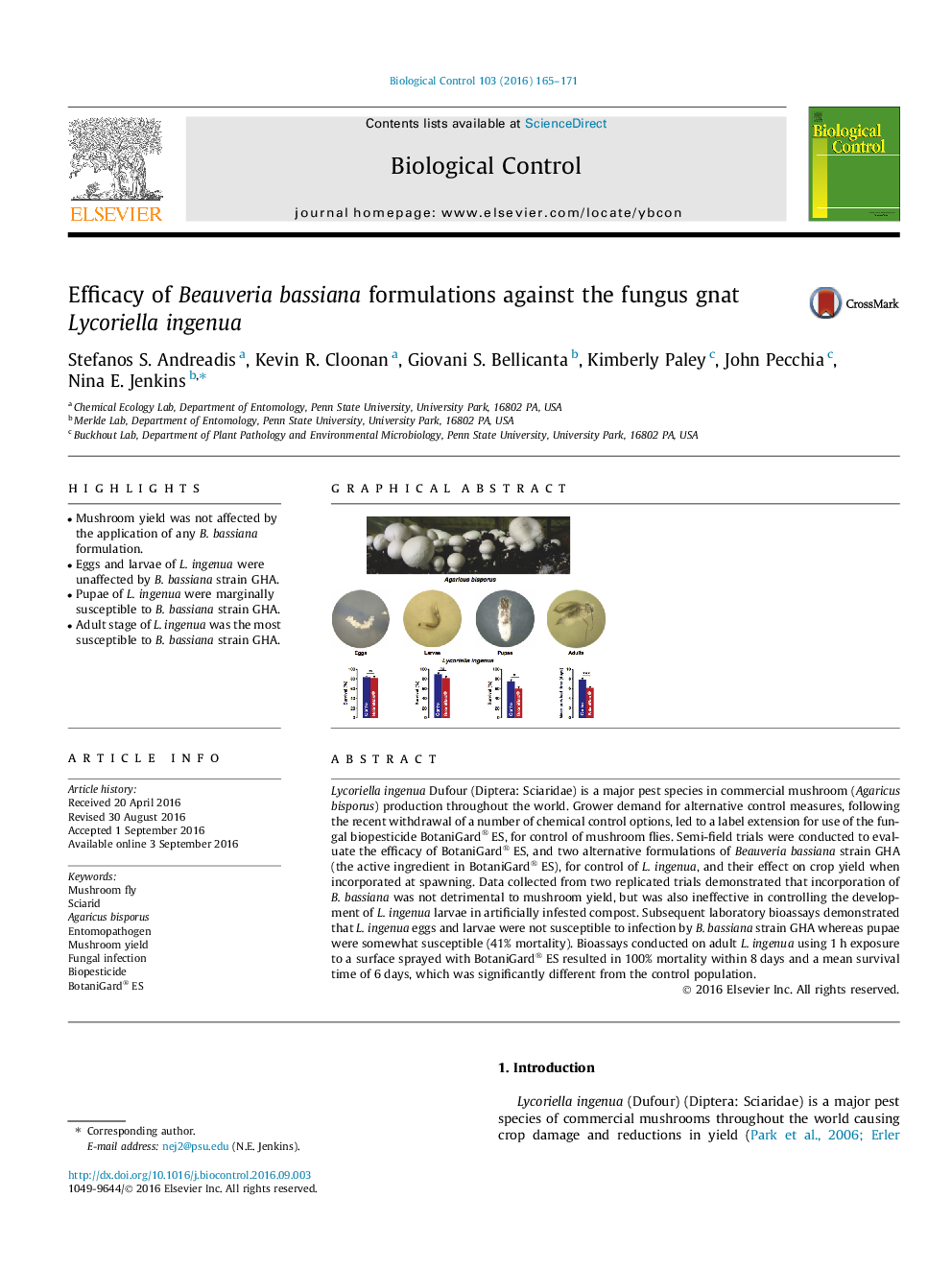| Article ID | Journal | Published Year | Pages | File Type |
|---|---|---|---|---|
| 4503547 | Biological Control | 2016 | 7 Pages |
•Mushroom yield was not affected by the application of any B. bassiana formulation.•Eggs and larvae of L. ingenua were unaffected by B. bassiana strain GHA.•Pupae of L. ingenua were marginally susceptible to B. bassiana strain GHA.•Adult stage of L. ingenua was the most susceptible to B. bassiana strain GHA.
Lycoriella ingenua Dufour (Diptera: Sciaridae) is a major pest species in commercial mushroom (Agaricus bisporus) production throughout the world. Grower demand for alternative control measures, following the recent withdrawal of a number of chemical control options, led to a label extension for use of the fungal biopesticide BotaniGard® ES, for control of mushroom flies. Semi-field trials were conducted to evaluate the efficacy of BotaniGard® ES, and two alternative formulations of Beauveria bassiana strain GHA (the active ingredient in BotaniGard® ES), for control of L. ingenua, and their effect on crop yield when incorporated at spawning. Data collected from two replicated trials demonstrated that incorporation of B. bassiana was not detrimental to mushroom yield, but was also ineffective in controlling the development of L. ingenua larvae in artificially infested compost. Subsequent laboratory bioassays demonstrated that L. ingenua eggs and larvae were not susceptible to infection by B. bassiana strain GHA whereas pupae were somewhat susceptible (41% mortality). Bioassays conducted on adult L. ingenua using 1 h exposure to a surface sprayed with BotaniGard® ES resulted in 100% mortality within 8 days and a mean survival time of 6 days, which was significantly different from the control population.
Graphical abstractFigure optionsDownload full-size imageDownload as PowerPoint slide
